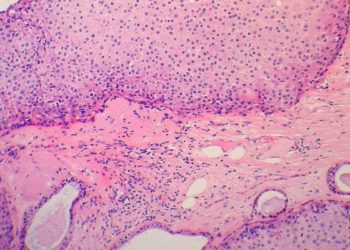Statins reduce the risk of cardiovascular disease in intermediate risk patients: The HOPE-3 trial
1. Statin therapy significantly reduced the risk of cardiovascular disease (CVD) in patients with intermediate cardiovascular risk for disease. Specifically, statin therapy was associated with a significant decrease in a composite cardiovascular endpoint consisting of cardiovascular-related death, nonfatal stroke, and nonfatal myocardial infarction (MI).
2. There was no significant difference seen in all-cause mortality.
Evidence Rating Level: 1 (Excellent)
Study Rundown: It is well known that statin therapy in people with elevated cholesterol reduces risk of cardiovascular events, even in those without evidence of CVD. These trials were conducted within a relatively homogenous Caucasian population and all participants had elevated lipid levels. It is unclear if the benefits from statins would encompass ethnically diverse individuals with intermediate risk of CVD but no existing CVD. This trial aimed to determine the efficacy of statins for primary prevention of CVD in individuals with intermediate CVD risk.
Treatment with rosuvastatin resulted in a 25% decrease in risk of cardiovascular events (CV-related death, nonfatal stroke, and nonfatal MI) as compared to placebo in the ethnically diverse, intermediate-risk population without preexisting CVD. There was no significant decrease seen in all-cause mortality. The adverse event of muscle symptoms was higher in the statin group. Strengths of this study include its inclusion of multi-ethnic participants, over multi-national sites to study the efficacy of statins in patients without CVD.
Click to read the study, published today in NEJM
Relevant Reading: Blood-pressure lowering in intermediate-risk persons without cardiovascular disease
In-Depth [randomized controlled trial]: The Heart Outcomes Prevention Evaluation (HOPE)-3 trial was a multicenter, international, double-blind, randomized, placebo-controlled trial was conducted at 228 centres in 21 countries. This trial had a 2-by-2 factorial design studying the effect of rosuvastatin 10 mg daily, candesartan 16 mg/hydrochlorothiazide 12.5 mg daily or a combination of these therapies on the risk of CVD in individuals with intermediate cardiovascular risk. This particular study focused on the statin therapy. Men and women with one CVD risk factor (one of: elevated waist-to-hip ratio, history of low level of HDL, tobacco use, dysglycemia, family history of premature coronary disease or mild renal dysfunction) were included in the trial. All eligible participants underwent a 4-week run-in phase to ensure tolerability and adherence of the medications. Patients were randomized to one of four groups: candesartan/hydrochlorothiazide only, candesartan/hydrochlorothiazide plus rosuvastatin 10 mg, rosuvastatin only or placebo only. Patients were followed regularly for the coprimary outcomes of 1) composite of death from cardiovascular causes, nonfatal stroke, or nonfatal MI 2) the above composite but including resuscitated cardiac arrest, heart failure and revascularization. All-cause mortality was also analyzed as a secondary outcome. Statistical analysis was performed with an intention-to-treat analysis with Cox proportional-hazards models.
From April 2007 to November 2010, 12,705 participants were randomized to the different treatment groups. Median follow-up was 5.6 years. There was a 26.5% decrease in mean LDL-cholesterol in the rosuvastatin group as compared to placebo. The first coprimary outcome occurred significantly less in the rosuvastatin group (3.7% vs. 4.8%; HR 0.76; 95% [CI] 0.64-0.91). There was a significant decrease in the second coprimary outcome in the rosuvastatin group: 4.4% vs. 5.7%, HR 0.75; 95% [CI] 0.64-0.88, p<0.001. A significant increase in muscle symptoms in the statin group was observed (5.8% vs. 4.7%; p=0.005).
Image: PD
©2016 2 Minute Medicine, Inc. All rights reserved. No works may be reproduced without expressed written consent from 2 Minute Medicine, Inc. Inquire about licensing here. No article should be construed as medical advice and is not intended as such by the authors or by 2 Minute Medicine, Inc.







